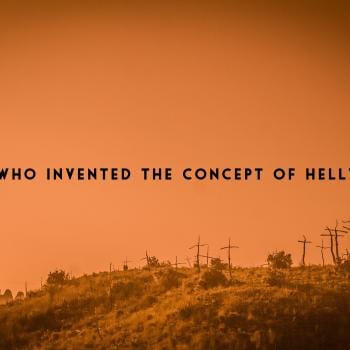I recently finished my first year here in Princeton, after such a long year, I can say the most grueling process of it is not so much the academic rigor, but the deconstruction of our faith.
Just to be clear… by deconstruction, I mean the absolute obliteration.
Taking everything that we came in knowing without a shadow of a doubt, and tossing it out the window, refuting it with things in which we’ve never considered.
Studying the atrocities that make up the history of Christianity. The fallibilities of the councils that decided our creeds. Learning how the bible was canonized (put together). Focussing on meanings and definitions all while noticing the seemingly endless contradictions throughout scripture. Wondering is there any absolute truth? Asking oneself who or what is God? Was this metaphorical, literal, analogical, or all of the above at one time?
Just when you’ve had enough of that, we begin to dissect the trinity, and then discuss the “essence” of God. Learning words like subordinationism, hypostatic union, or enhypostasis, words in which I’ll never use (hopefully) in day to day conversation, outside of seminary.
I can say that from a purely academic/intellectual stance, it’s extremely hard to believe in the fact that Jesus is God.
To dissect scripture, The Trinity, historical Jesus, or anything of the sort, without the power, reliance, and movement of the Holy Spirit, all of this will inevitably destroy you.
It’s the idea of taking this unfinished puzzle we have pieced together throughout the entirety of our lives, only to have someone aggressively throw it on the floor. Leaving us with the scattered pieces, frantically gathering, searching, and picking them up, some things are lost others are found. All the while dealing with the emotional trauma of everything you once knew, you no longer know.
Ignorance, in retrospect, can seem to be bliss.
Carl Sagan had a similar experience after seeing a picture of Earth taken by the Voyager 1 spacecraft from a distance of 3.7 billion miles away from Earth. In the picture, Earth is seen as pale blue dot, only a fraction of a pixel, suspended in a beam of light. It inspired him to write a now famous prose about the wonder and awe of such a vision, within the prose he says:
“There is perhaps no better demonstration of the folly of human conceits than this distant image of our tiny world.”
When we’re able to take a step back, away from the clutter of our lives, we might begin to see and realize the grandeur and incomprehensibility of our God. Perhaps in the same way giving us a better demonstration of the folly of our human conceits…
Wars have been fought, lives have been lost, families are continued to be torn apart, all in the name of their/our God. We’ve spent hundreds of years contemplating the complexities of this God, trying to gain understanding into his nature and character, yet, some of the greatest theologians, and thinkers, have to come to the conclusion that in the end…
They don’t know.
They cannot say for sure.
They come to the same conclusion as Socrates saying:
I know one thing: that I know nothing.
Many of us externally pretend to know and be confident about so much, but internally if we were to take a step back and analyze our perspective, our faith, and what we know we couldn’t help but to see our fallibility, and possibly open ourselves to divine humility received through and by the grace given to us through the Power of the Holy Spirit.
(So I nervously share with you an excerpt from my upcoming book, I’m co-writing with Andrew Steven. It’s set to come out this fall. Put in your email below, and I’ll keep you up to date on it’s progress, love you guys, appreciate you, if ever you’d like to connect just email directly at [email protected])











